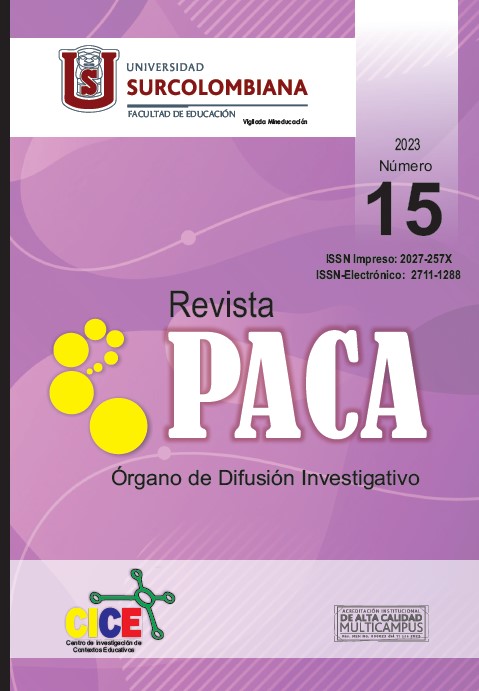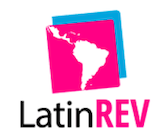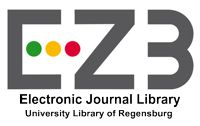Pedagogical proposal to work on social interaction from physical education within the framework of the back to school program
##plugins.themes.bootstrap3.article.main##
This article analyzes and identifies the state of social skills of 64 students from the IED Carlos Arango Vélez school and 108 students from the IED Guillermo León Valencia in cycle three (sixth and seventh) and cycle four (eighth and ninth). within the framework of the return to school program (young people in extra age), in the city of Bogotá between 2017 and 2018.
The systematic review and selection of the EHS (social skills scale) proposed by Elena Gismero (2000) was carried out, which allows evaluating the assertive behavior (assertion) of people's social skills, from the evaluation of 33 items
grouped into 7 factors or groups of social skills.
To establish the state of social skills, it was applied in pretest and postest; from
the quantitative perspective, a statistical analysis of the EHS was carried out with
the computer-statistical program SPSS V.3.0.
Said analysis suggests that the students of the return to school program have
a notorious deficit in their social skills, which possibly increases the difficulty
of achieving an adequate adaptation and inclusion to the school context, an
improvement in their forms of interaction with their peer groups and with the
educational community.
This analysis also allows validating the following approach, How to contribute to
the improvement of the forms of social interaction of students of cycle 3 (sixth
and seventh grade students) from physical education within the framework of
the return to school program in the IED Carlos Arango Vélez?. To answer this
question, the social skills deficit of 32 students of cycle three (sixth and seventh)
of the Carlos Arango Vélez school of the return to school program is established.
Taking as a reference the social skills with a greater deficit in their assertion in this
population, a pedagogical proposal is designed from physical education and bearing
in mind the philosophical current "symbolic interactionism" of George Mead.
At the end of the implementation of the pedagogical proposal, a post test is
carried out with the EHS application, to determine whether or not there
is evidence of an improvement in the development of the skill groups in the
students of cycle 3 of the return to school program. in the educational institution
Carlos Arango Vélez.
The results indicate that the students of the IED Carlos Carlos Arango Vélez cycle
3 and 4 present a greater deficit in the social skills of keeping their opinions,
saying no, cutting off interactions and starting interactions with the opposite sex,
while the students of the IED Guillermo León Valencia present a greater deficit in
yielding and avoiding problems.
Downloads
##plugins.themes.bootstrap3.article.details##
Bachiller, R. (2018, p. 36). Habilidades sociales en estudiantes de quinto año de secundaria de una institución educativa particular de Lima Metropolitana. Universidad Inca Garcilaso de la Vega. Facultad de Psicología y Trabajo Social.
Caballo, V. (1983, p. 3). Asertividad. Definiciones y dimensiones. Universidad Autónoma de Madrid.
Caballo, V. (2005, p. 236-307). Manual de evaluación y entrenamiento de las habilidades sociales. Ed. Siglo XXI.
De Rosa, P. (2018, p. 4, 5, 6 y 8). Enfoque psicoeducativo de Vygostky y su relación con el interaccionismo simbólico: Aplicación a los procesos educativos y de responsabilidad penal juvenil. Artículo de revisión, Universidad Salesiana. Argentina. Recuperado en: http://revistas.usil.edu.pe/index.php/pyr/article/view/246
Foppiano, G. (2013, p. 10). Actividad física y deporte orientado al refuerzo de las habilidades sociales en sectores de alta vulnerabilidad. Tesis de Grado. Universidad de Concepción. Chile.
Frías-Navarro, D. (2022). Apuntes de estimación de la fiabilidad de consistencia interna de los ítems de un instrumento de medida. Universidad de Valencia. España.
Gismero, E. (2010). Manual de escala de habilidades sociales. Primera Edición. Ed. Tea Ediciones S.A.
Infante, R. y Parra, L. (2010, p. 79). Deserción escolar y desarrollo social del Programa Volver a la Escuela en Bogotá. Revista Educación y Desarrollo Social. Universidad Militar.
Letelier, A. (2015, p. 30-31). Concepciones sobre la interacción social en la relación del aprendizaje y desarrollo en docentes de primero básico. Tesis de Maestría. Universidad de Chile.
Restrepo, E. (2008, p. 19). La Educación Física en el fortalecimiento de las habilidades sociales de los estudiantes del grado primero de la Institución Educativa Eduardo Santos, Sede Pedro J. Gómez. Propuesta investigativa.
Reyes, S. (2002, p. 27-36). Desarrollo de habilidades sociales en adolescentes en secundaria, una propuesta-taller. Universidad Pedagógica Nacional, Academia de Pedagogía. México.
Romero, C. (2007, p. 6). Delimitación del campo didáctico de la educación.
Sampieri, R., Fernández, C. y Baptista P. (2006, p. 771). Metodología de la investigación. Cuarta edición.
Universidad de América Latina, Programa de sociología. Escrito unidad 5. Interaccionismo simbólico, [en línea], disponible en: http://ual.dyndns.org/Biblioteca/Sociologia/Pdf/Unidad_05.pdf. Recuperado: 29 de septiembre de 2017, p. 14.
Zubiría. (1997, p. 11). Centro Nacional de Memoria Histórica. Informe Dimensiones políticas y culturales en el conflicto colombiano. Recuperado 2 octubre de 1997. Recuperado: https://www.centrodememoriahistorica. gov.co/descargas/comisionPaz2015/zubiriaSergio.pdf
































